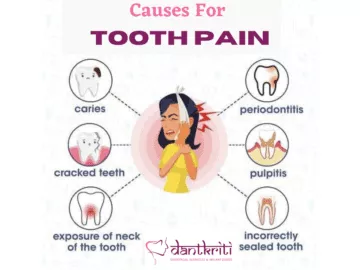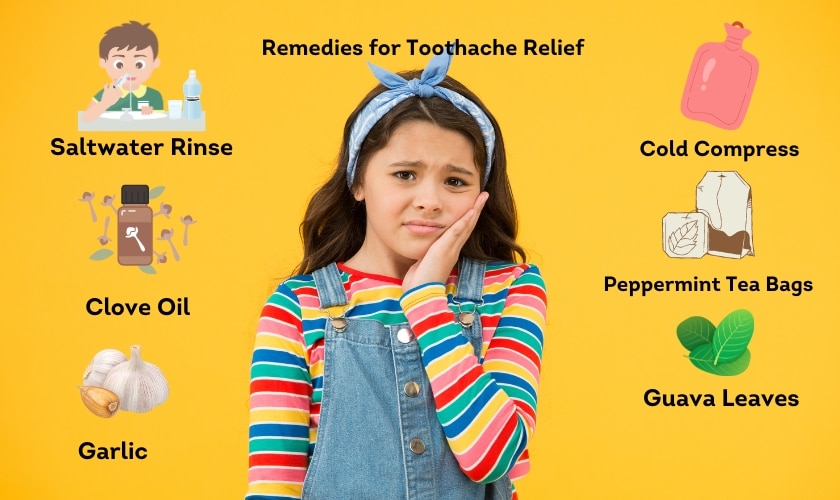Tooth pain can be excruciating, affecting your daily life and comfort. While it’s crucial to visit a dentist to address the root cause, there are several safe ways to manage tooth pain at home. This article will explore effective home remedies, over-the-counter solutions, and when it’s essential to seek professional dental care.
Understanding Tooth Pain: What Causes It?

Tooth pain can arise from various issues, such as:
1. Tooth Decay or Cavities
When bacteria in the mouth break down food particles, they create acids that erode the enamel, leading to cavities. These cavities can reach the tooth’s nerve, causing significant pain.
2. Gum Disease
Gum infections and inflammation, such as gingivitis or periodontitis, can lead to pain and discomfort around the teeth.
3. Cracked or Broken Teeth
Teeth can crack or break due to injury, grinding, or biting on hard objects. These cracks can expose the nerve and cause sharp, intense pain.
4. Abscessed Tooth
An abscess is a pocket of pus caused by a bacterial infection. It can cause severe pain and requires immediate professional treatment.
Safe Home Remedies for Managing Tooth Pain

While these remedies can help alleviate pain temporarily, they are not a substitute for professional dental care:
1. Saltwater Rinse
Saltwater is a natural disinfectant that can help reduce inflammation and heal oral wounds.
- How to Use: Mix 1/2 teaspoon of salt in a glass of warm water. Swish it around your mouth for about 30 seconds, then spit it out. Repeat 2-3 times a day.
2. Cold Compress
A cold compress can help reduce swelling and numb the area, alleviating pain.
- How to Use: Wrap a few ice cubes in a cloth or use a cold pack. Apply it to the outside of your cheek for 15-20 minutes. Repeat as needed.
3. Clove Oil
Clove oil contains eugenol, a natural anesthetic and antibacterial agent that can help numb pain and reduce inflammation.
- How to Use: Dip a cotton ball in clove oil and apply it directly to the affected area. Be careful not to swallow it. Use 1-2 times a day as needed.
4. Over-the-Counter Pain Relievers
Non-prescription pain relievers like ibuprofen or acetaminophen can help manage pain and reduce inflammation.
- How to Use: Follow the instructions on the medication’s label, and do not exceed the recommended dosage.
5. Hydrogen Peroxide Rinse
A diluted hydrogen peroxide rinse can help kill bacteria, reduce plaque, and alleviate pain from gum disease.
- How to Use: Mix equal parts of 3% hydrogen peroxide and water. Swish it around your mouth for about 30 seconds, then spit it out. Do not swallow. Use once daily.
When to Seek Professional Help for Tooth Pain
Home remedies can help temporarily manage tooth pain, but certain situations require immediate professional care:
1. Persistent Pain
If tooth pain persists for more than two days despite using home remedies, it’s time to consult a dentist.
2. Swelling or Fever
Swelling in the gums, face, or a fever may indicate a severe infection that needs professional treatment.
3. Signs of an Abscess
Symptoms like severe, throbbing pain, a foul taste in the mouth, swollen glands, or difficulty swallowing could indicate an abscessed tooth, which requires urgent dental care.
4. Broken or Knocked-Out Tooth
If you have a cracked, broken, or knocked-out tooth, visit a dentist immediately to prevent further complications.
Why You Should Avoid Trying to Kill a Tooth Nerve at Home
Attempting to kill a tooth nerve at home is highly dangerous and can lead to severe complications, such as:
- Infections: Without proper sterilization and professional techniques, you could introduce bacteria into the tooth, leading to an abscess or a more serious infection.
- Permanent Damage: You could cause irreversible damage to your gums, jawbone, or surrounding teeth.
- Increased Pain: Incorrect methods can exacerbate pain rather than relieve it.
Conclusion: Managing Tooth Pain Safely at Home
While it’s possible to manage tooth pain temporarily with safe home remedies like saltwater rinses, cold compresses, or clove oil, it’s crucial to understand that these methods are only temporary solutions. For persistent or severe pain, swelling, or signs of infection, seeking professional dental care is essential to avoid serious complications and ensure proper treatment. Remember, your oral health is vital to your overall well-being—don’t risk it by attempting unsafe home procedures.
Disclaimer: The content on Wellness Derive is for informational purposes only and not a substitute for professional medical advice, diagnosis, or treatment. Always consult a healthcare provider for medical concerns.



